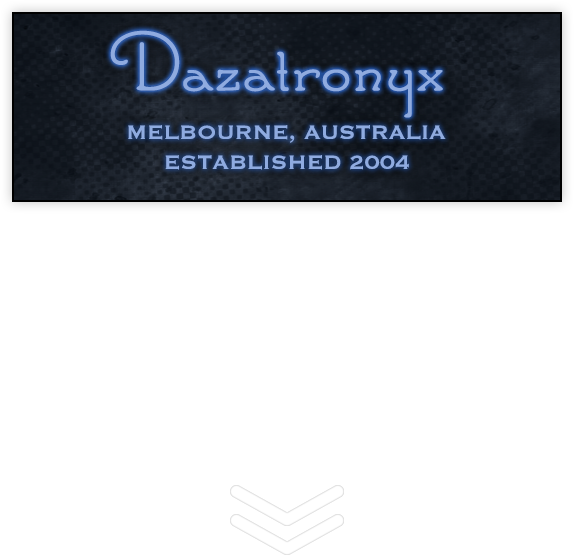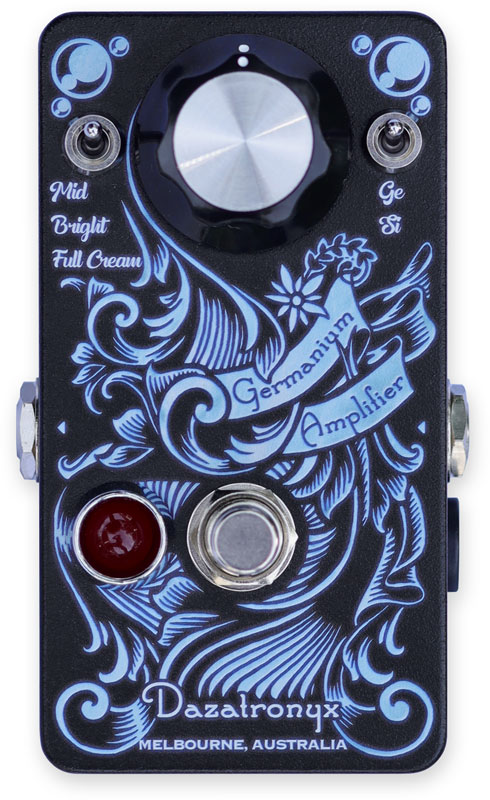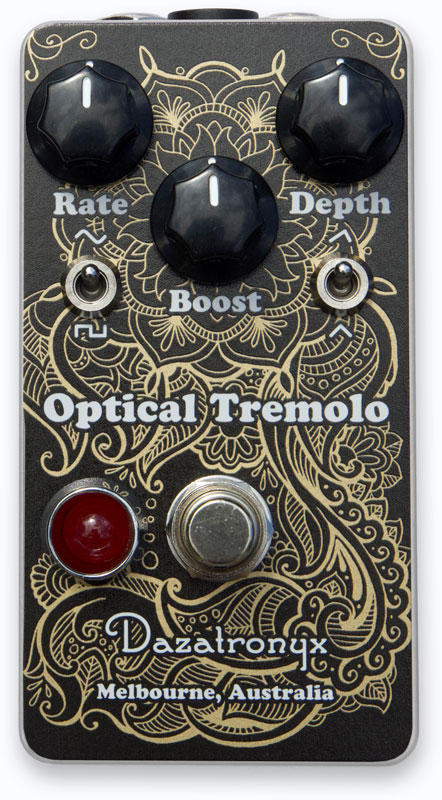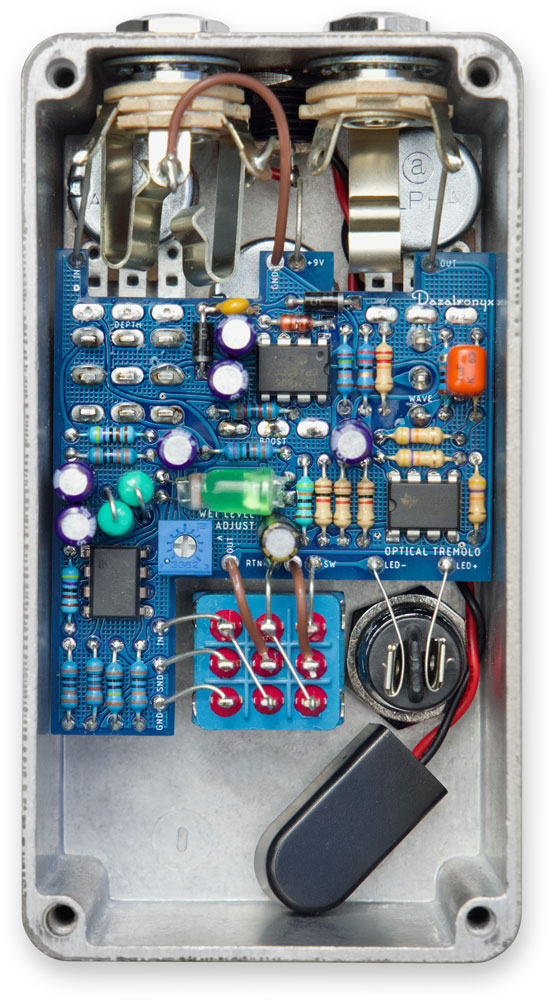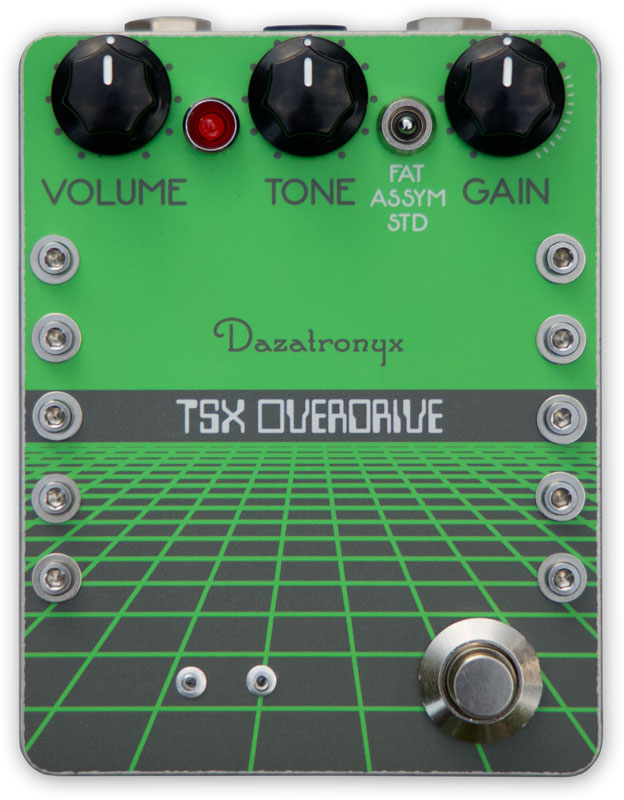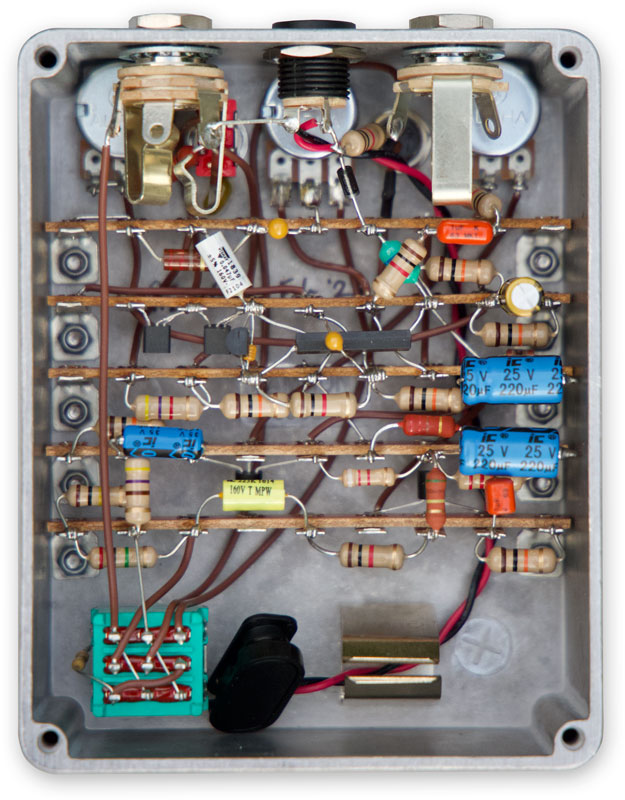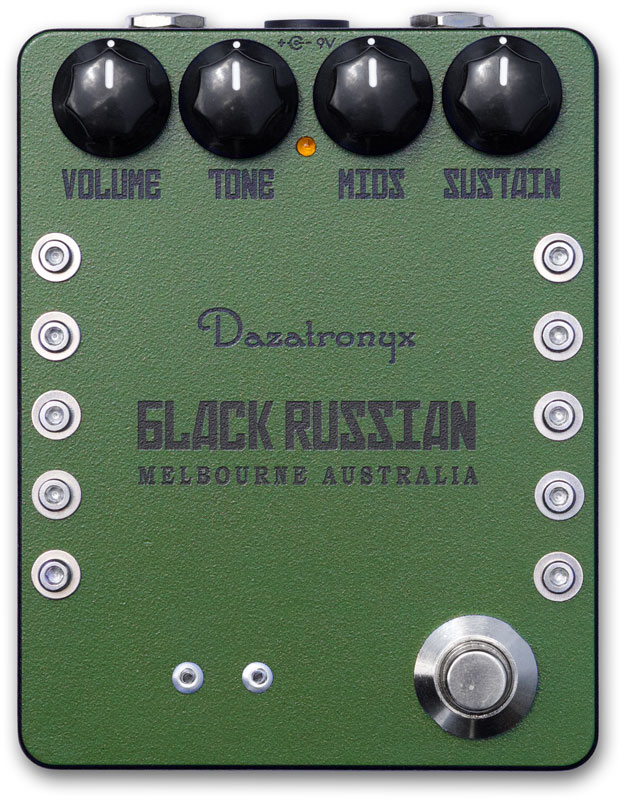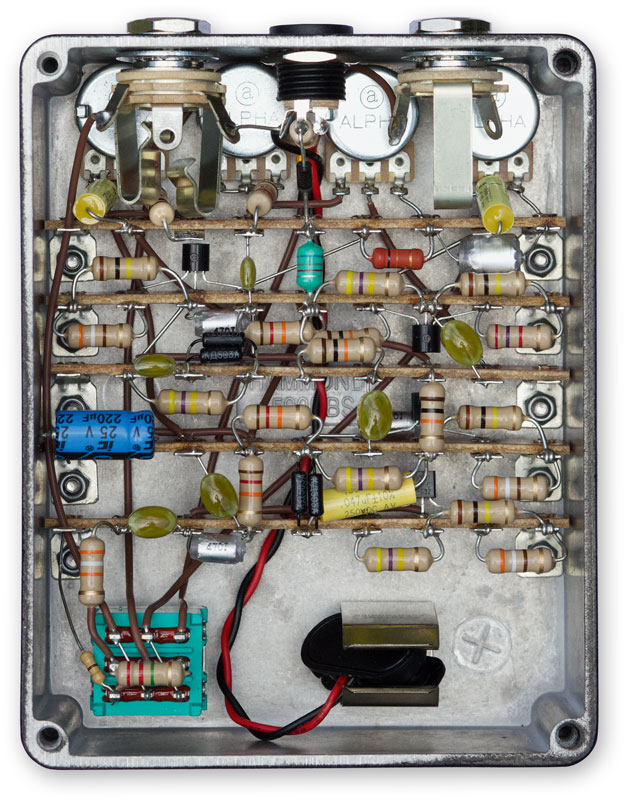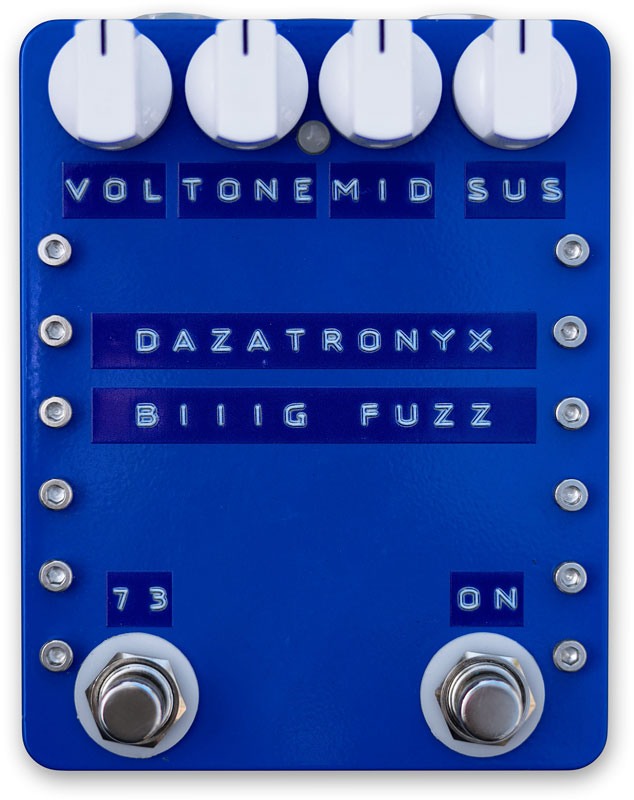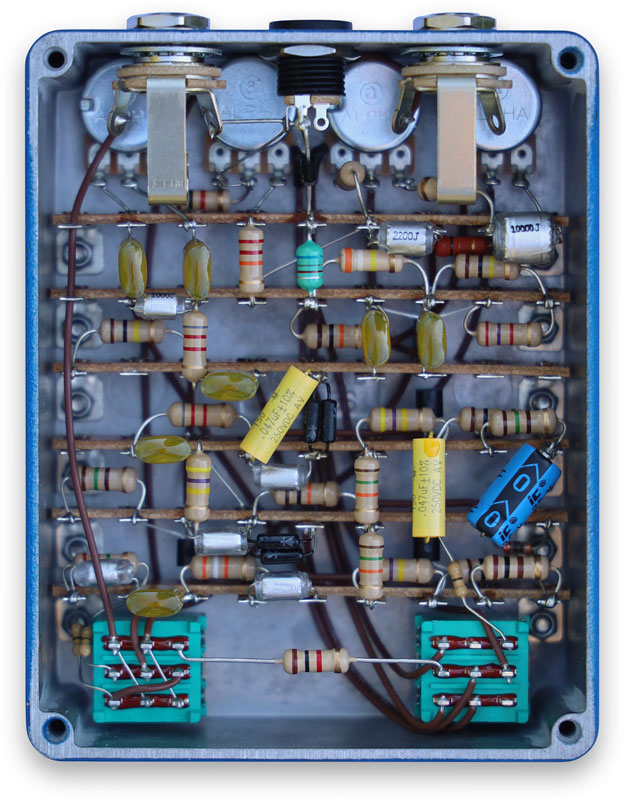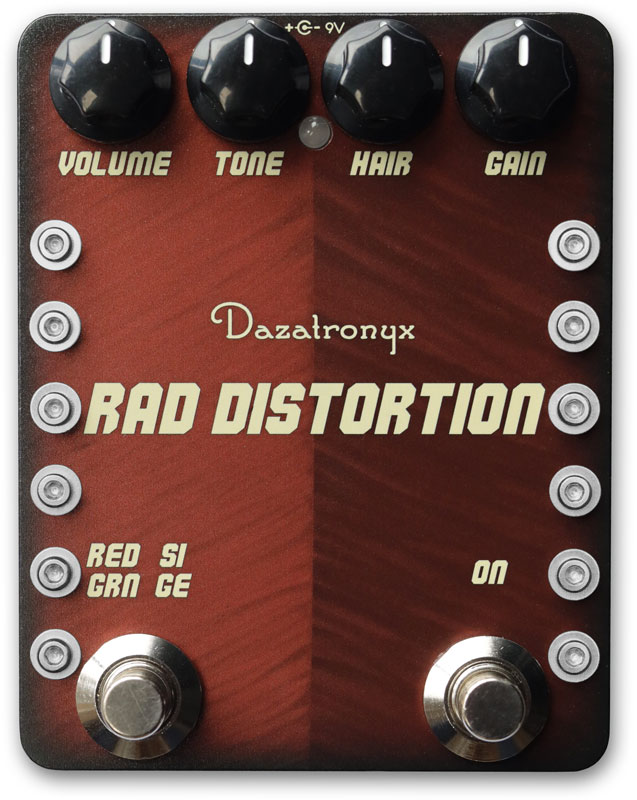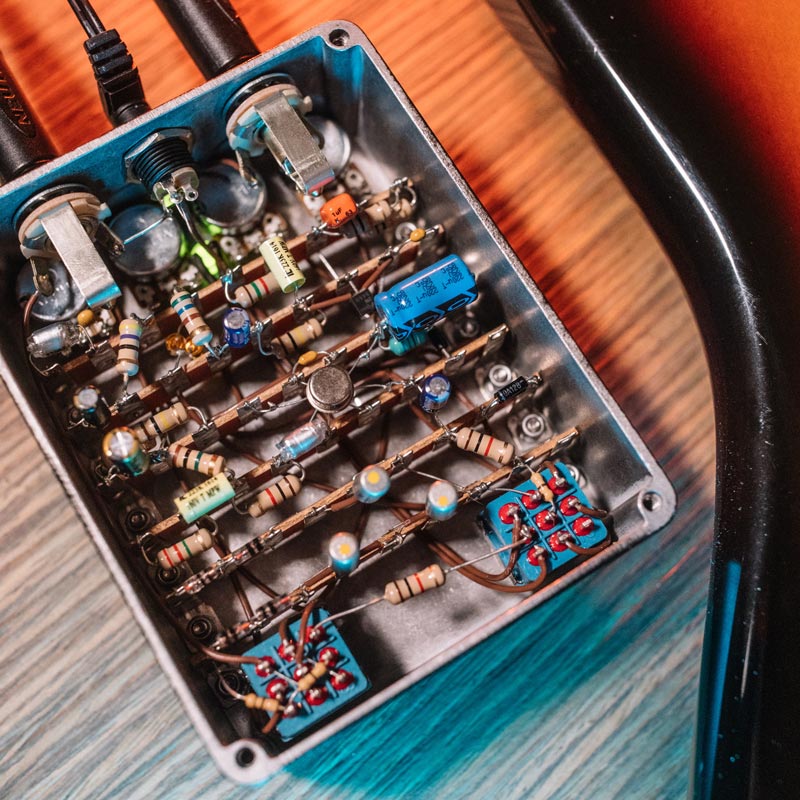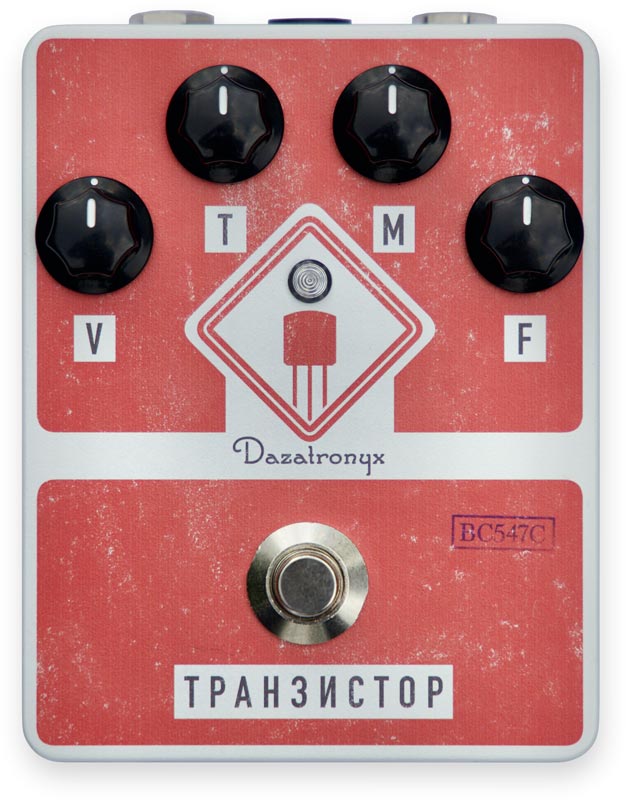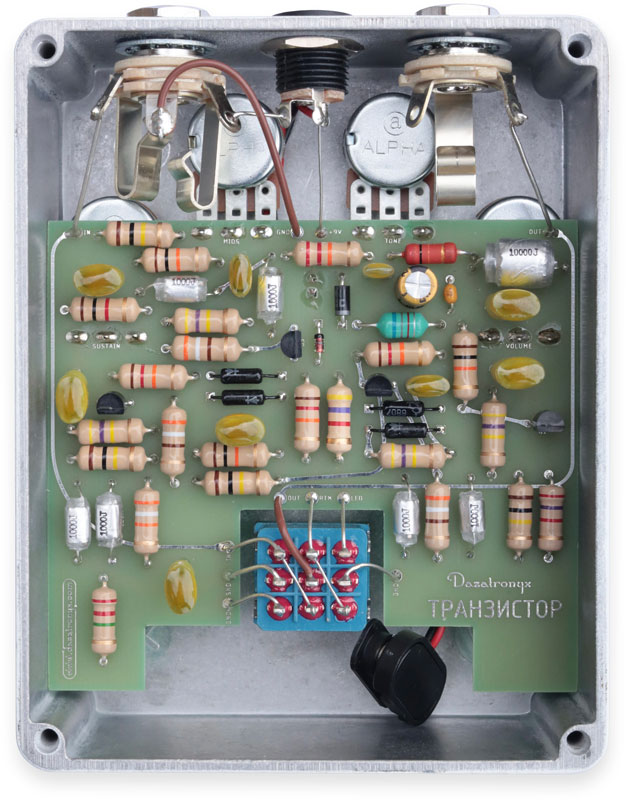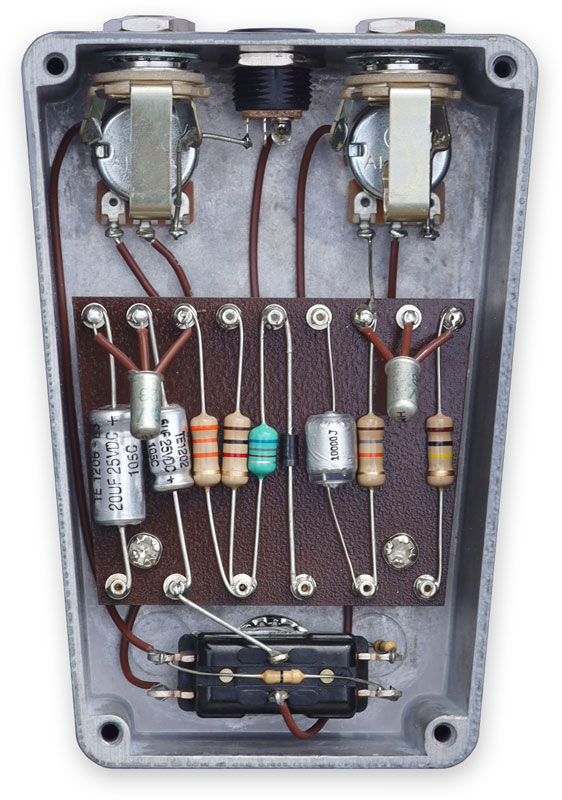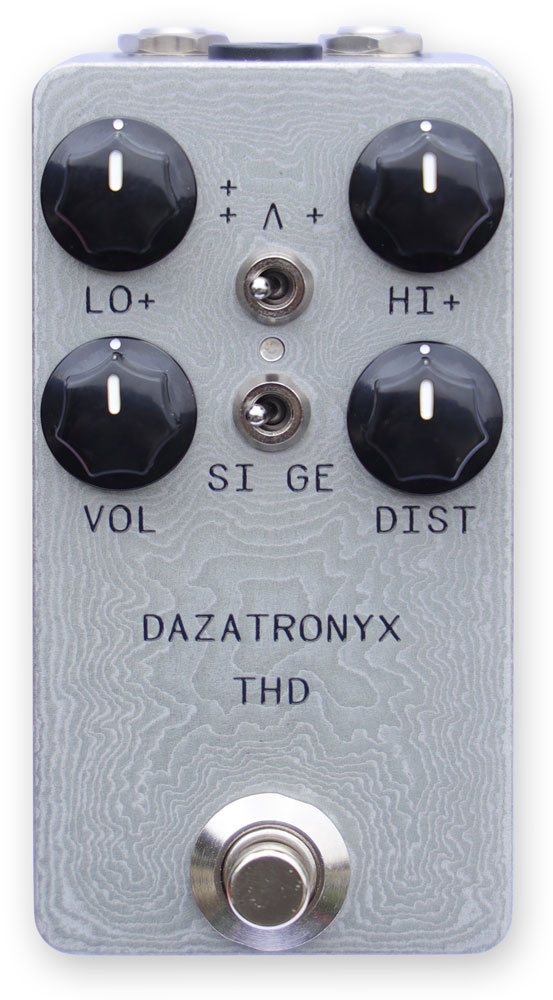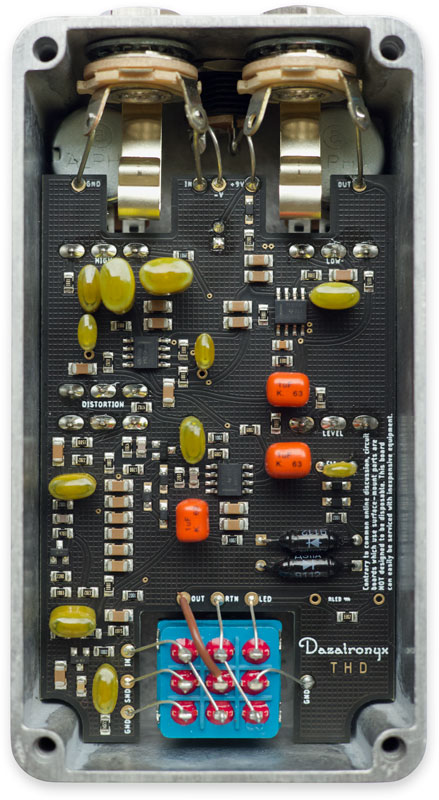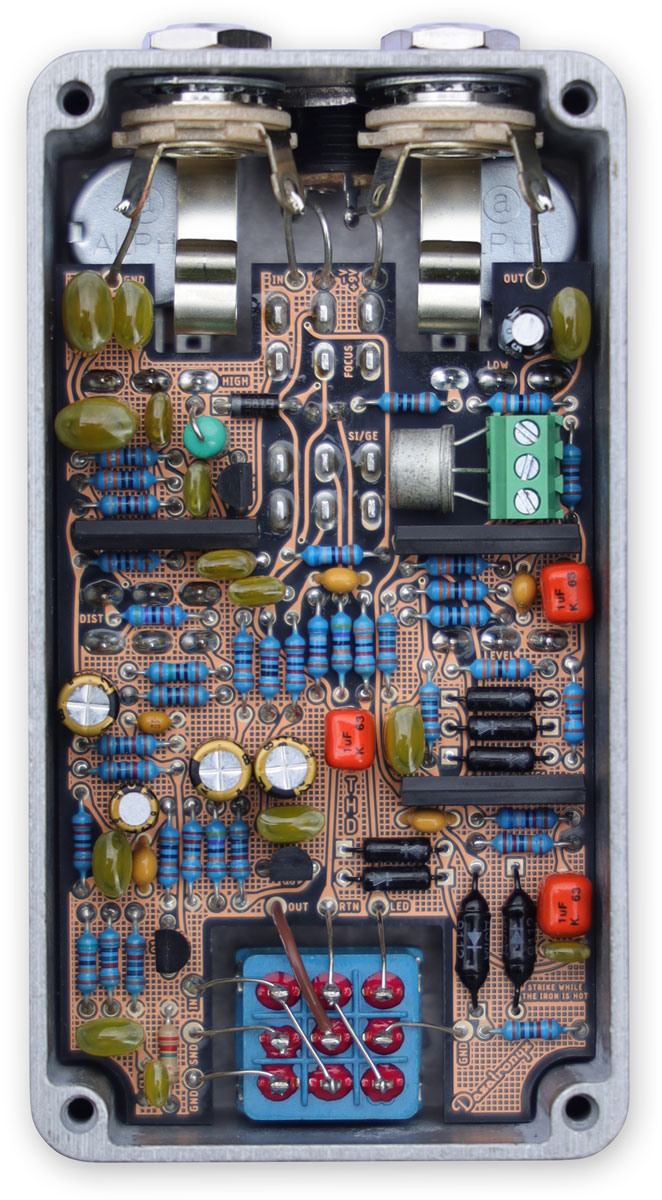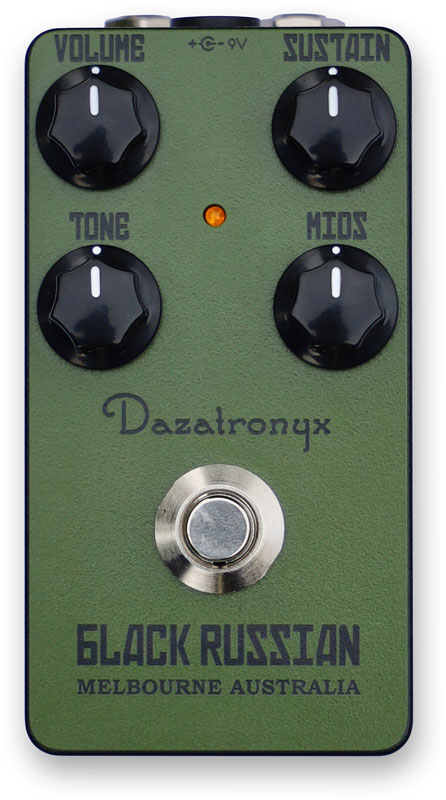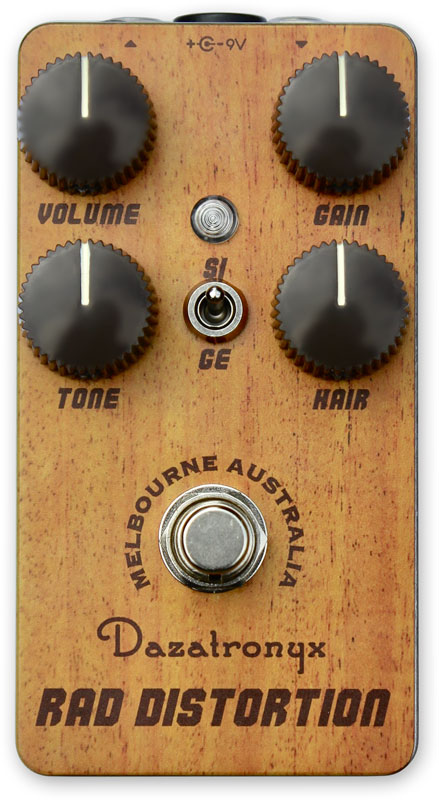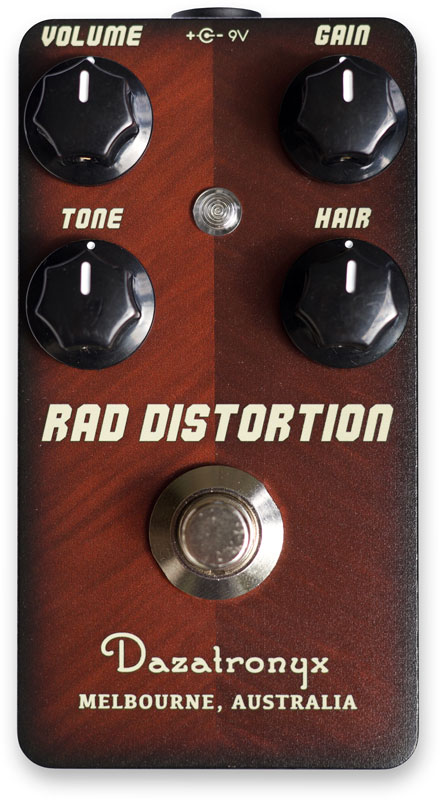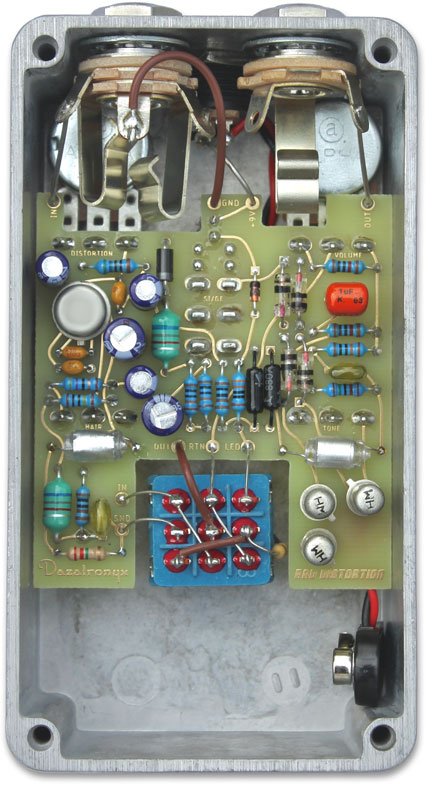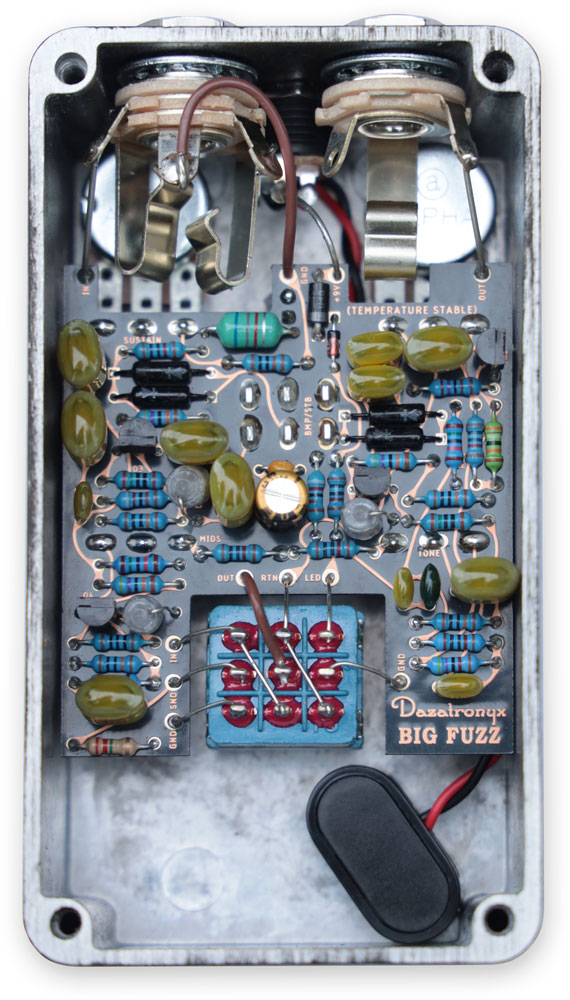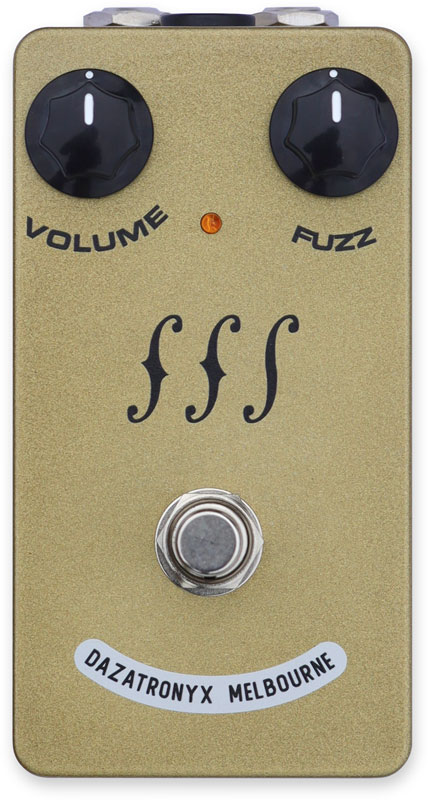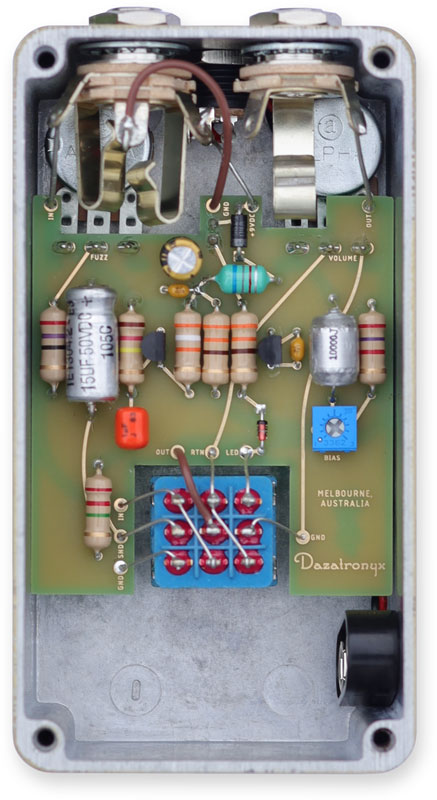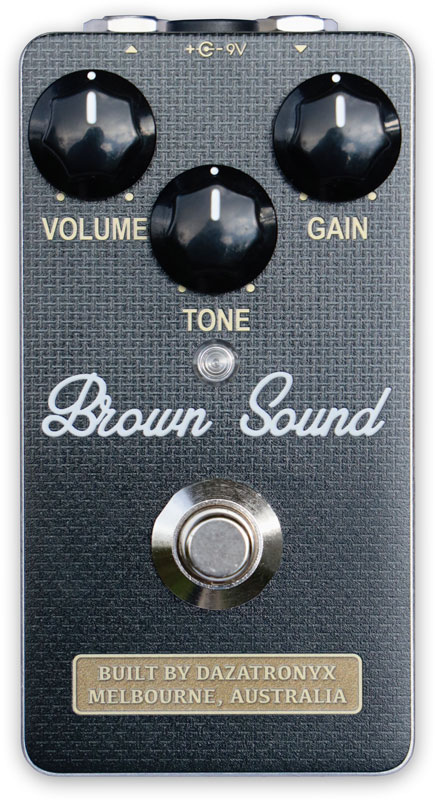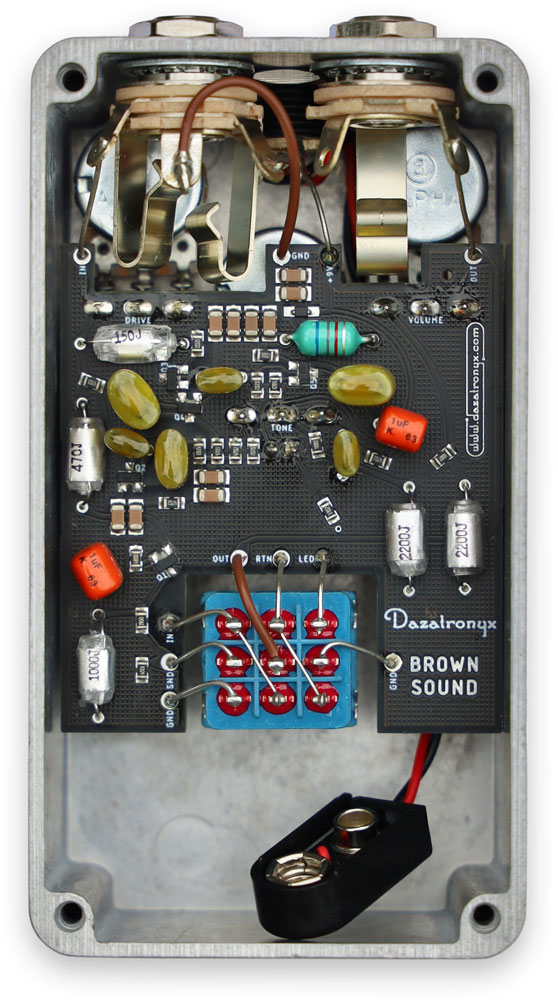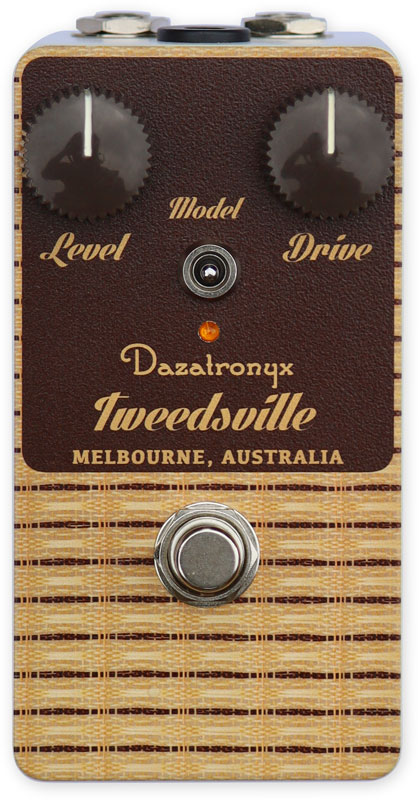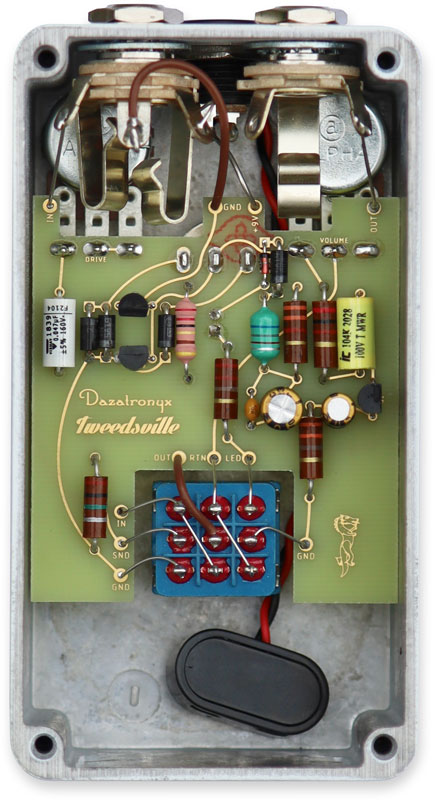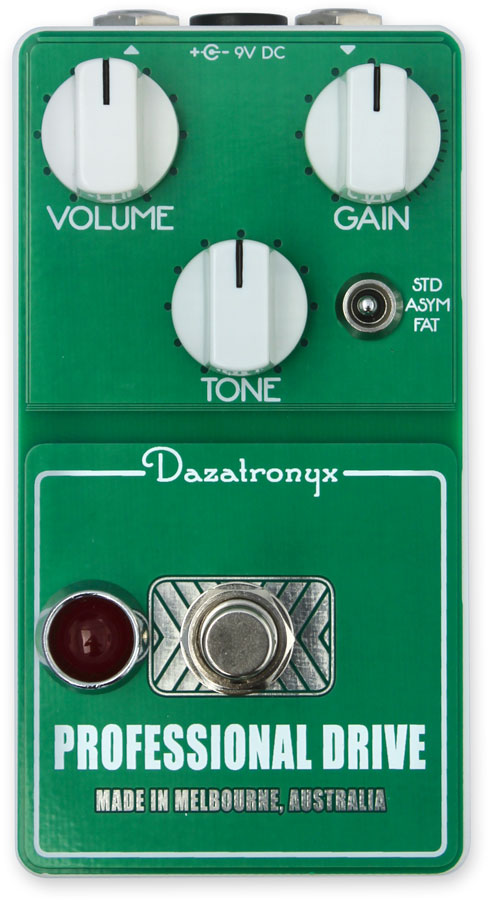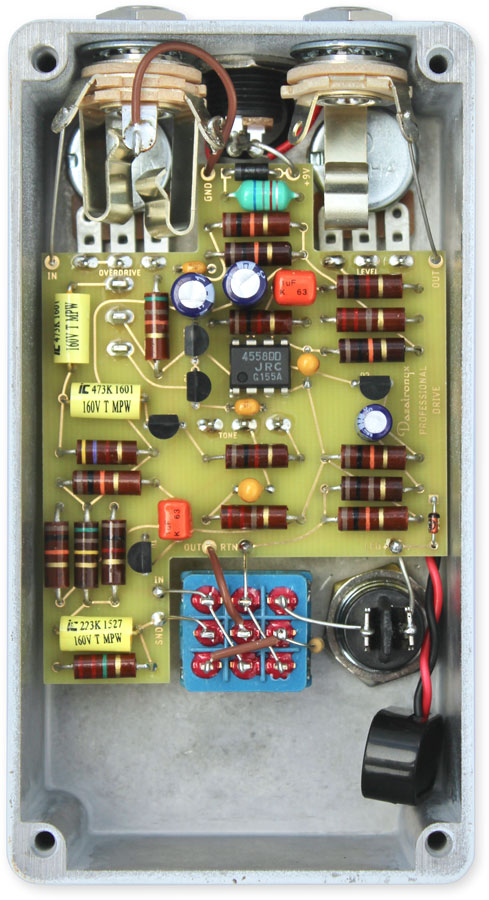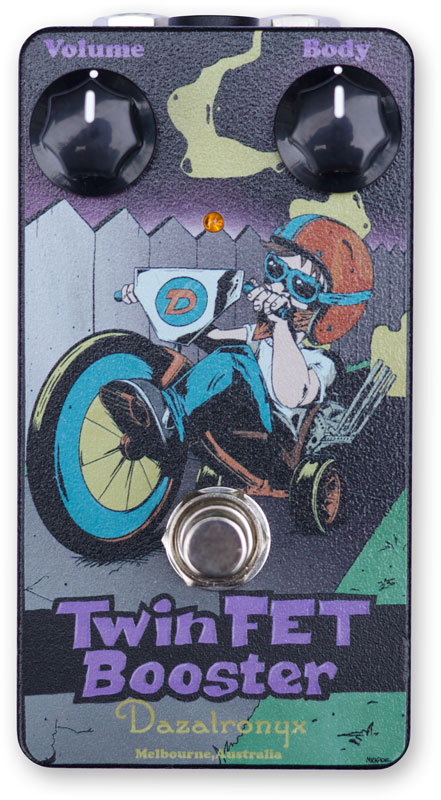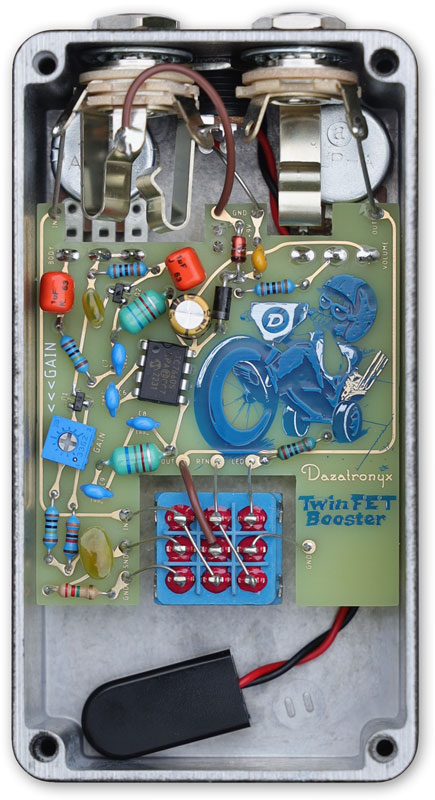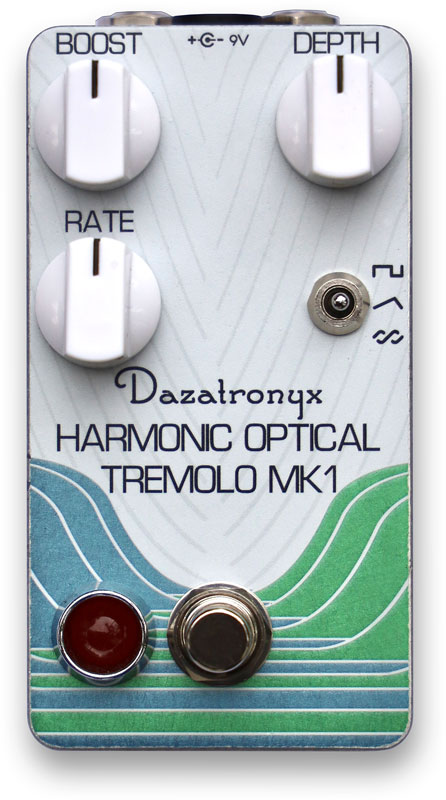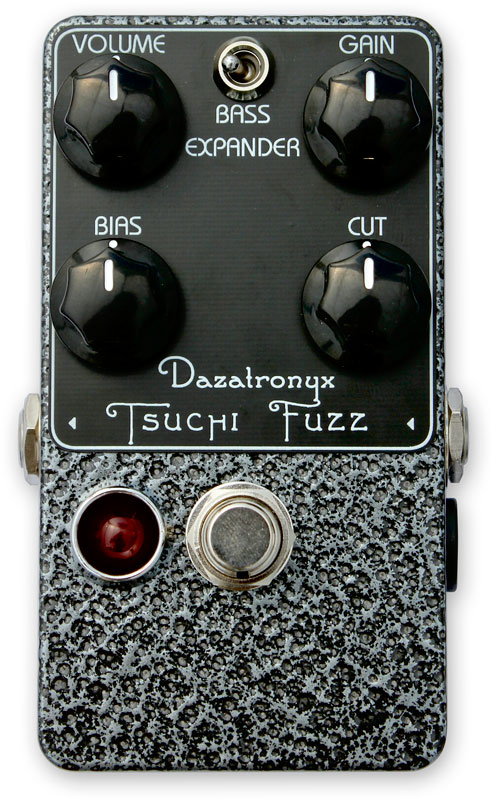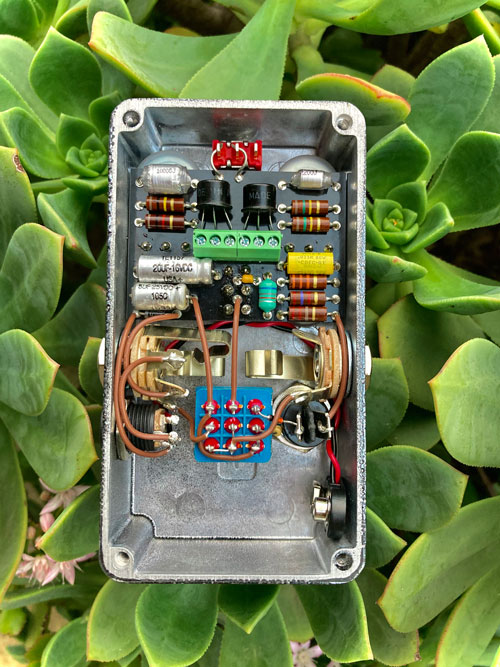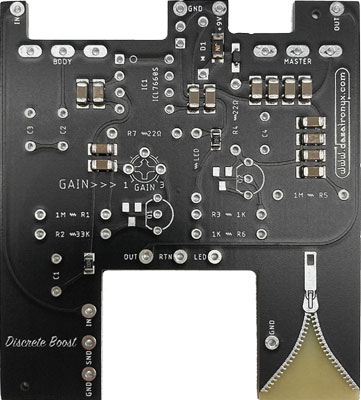PhilosophyI began designing pedals in secondary school, and have remained fixated ever since. My design style is a hybrid combination of vintage and modern technologies. I build each pedal myself by hand, as I would for myself or a close friend. This is an ongoing solo study project, for my own personal benefit. My pedals are designed, drilled, powder coated, printed, soldered, and assembled at home, in the south-eastern suburbs of Melbourne, Australia. As the person building the pedals, as well as designing them, I am afforded the opportunity to make continuous micro revision and improvements, while working in very small batch sizes. If I can think of anything to improve, I will usually do it on the next batch. For hobby-sake, I like to handle as much of the building process myself as I can. I don't mind spending a little bit more money on parts, since I'm aiming for a pedal which I'd like to keep for a lifetime. After hand-building thousands of pedals, this is adding up to an uncountable amount of lessons learned, and new dreams to follow.
parts, qualityAll pedals have a 10 year warranty. Here are some of the high quality parts which I commonly use in (most of) my pedal designs:
news and updates - Follow along:
|
|||
EFFECTS
|
| GERMANIUM AMPLIFIER |
|
| OPTICAL TREMOLO |
|
TSX XXL |
|
BLACK RUSSIAN XXL |
|
BIIIG FUZZ |
|
| ULTRA RAD DISTORTION |
|
ТРАНЗИСТОР |
|
| AC128 ARBITRARY FUZZ |
|
THD |
|
| BLACK RUSSIAN |
|
| BIG FUZZ |
|
| RAD DISTORTION |
|
| FFS |
|
| TSX OVERDRIVE |
|
| BROWN SOUND |
|
TWEEDSVILLE |
|
| PROFESSIONAL DRIVE XL |
|
TWIN FET BOOSTER |
|
| STEREO PANNING OPTICAL TREMOLO |
|
| TSUCHI FUZZ V2 |
CLASS A Germanium amplifier V2
Voicing switch:
GE / SI N.B. for purity of design, this pedal uses a positively grounded case. As such, it needs to be run from an isolated power supply, or battery. IE this pedal may not be suitable for a daisy-chain power supply. This is built in a small-footprint Hammond 1590B enclosure.
or |
| Mike Hermans |
| EDGE OF BREAKUP | |
| COLEMAN's MUSIC |
| OPTICAL TREMOLO My tremolos are easily my favourite circuits, and have occupied more of my design time than anything else. This was my first unique effect circuit design from scratch, which I started in high school. Development took over a decade before I was happy with the way that it sounded and functioned. By shining a fluctuating light against a photo-sensitive field, this tremolo uses all-analog photocoupling to restrict and modulate the output volume. Careful waveform construction, with non-linear shaping, creates an organic and lively volume fluttering, far divorced from sounding like a basic electronic waveform function. The square wave is similarly processed, so as not to sound like a computerised chop. Symmetry switch: This toggles between two modes which are subtly different. The asymmetric mode (up) has a slightly uneven rhythmic pattern - think of the first spinning liquid can tremolos. I feel this mode is sweeter when the playing tempo is not matching with the tremolo rate. The symmetrical mode (down) has an even 360 degree spin, with a very slightly deeper scoop. It has a classically pronounced tremolo shape - think of a rotary speaker. I generally prefer to use the asymmetrical mode for the square wave, as the signal stays 'on' longer, with less gap time. The symmetrical mode (down) square wave will give more perceived depth.
This circuit operates with in a split rail power supply for increased headroom, and has a very low noise level. As with all of my tremolo models, you should expected perceived unity volume with all depth and rate settings, without having to make any manual volume adjustments. The wet level can be adjusted internally by a trimpot.
or |
| Mike Hermans |
| A todo Fuzz | |
| James Ryan | |
| @_GUITAR_DAD | |
| The Super Fun Awesome HappyTime Pedal Show | |
| @_GUITAR_DAD | |
| brett kingman | |
| InTheBlues |
TSX XXL
My take on the famous Ibanez TS10 Tubescreamer, constructed entirely point-to-point on tagstrip. Featuring:
This pedal is built to order, as it takes multiple days to finish. Please allow approximately 1 week construction time. For demos, check out the standard size TSX build.
or |
BLACK RUSSIAN XXL Version 7C "Bubble Font" Green Russian / Black Russian build. This is a very similar circuit to the ТРАНЗИСТОР build. This can also be built as the Tall Font version on request. Featuring:
Built to-order. Please allow approximately one week construction time before posting. I am now using the "correct" soviet diodes (not shown in gut shot).
or |
Biiig Fuzz
This pedal was intentionally designed to look as homemade as possible, while still being built like a tank. The point-to-point application comes from my youth, when I worked in a valve amplifier factory exclusively with tag strip. There's no user manual. I assume that this won't be your first muff. The only thing to know is that the 73 switch toggles between standard muff setup (LED red) to a '73 Supa setup (LED green). The 73 mode has less diode compression on the low-end, widening the dynamic range in the bass, and allowing the natural transistor fuzz character to be better heard. There is no internal battery space. A battery may be used by means of an external adapter (not supplied). This pedal is expensive, as it takes me days to build. Built to-order. Please allow approximately one week construction time before posting. Components used may vary to those shown in the photo. Photos are shown as a general guide for construction and components quality.
"It sounds like... God. If God was a Big Muff pedal. If God was a fuzz pedal, I reckon, you know, it might sound like this" - Brett Kingman.
or |
| BRETT KINGMAN |
| BRETT KINGMAN | |
| BRETT KINGMAN | |
| JOSH SCOTT - JHS (52:30 in) | |
| The Super Fun Awesome HappyTime Pedal Show | |
| BRETT KINGMAN | |
| Workshop Assembly | |
| ASSEMBLY TIMELAPSE |
|
|
ULTRA RAD DISTORTION
A larger, point-to-point version of the compact Rad Distortion. This pedal can be used either as a classic ratty fuzz/distortion, or as a raunchy germanium overdrive. This is a sound of the '80s and '90s, with some Dazatronyx tweaks. The 'stock' silicon mode is the classic ratty sounding fuzz-distortion. This is achieved by a two-stage distortion of first overdriving the metal can 308 amplifier into fuzz, and then recovering some shape by further compressing the signal using hard-clipping silicon diodes. In the germanium mode, the silicon chip fuzz character gets removed. Germanium transistors and germanium diodes are used to achieve a rounded and organic overdrive-distortion with tight definition. The HAIR control dials the mid/high drive saturation. Turning this completely to the right achieves the classic metally ratty distortion. Turning this left achieves a full, flattened response. This is a variable version of the popular reutz mod. There is no internal battery space. A battery may be used by means of an external adapter (not included). This pedal is expensive, as it takes me days to build. Built to-order. Please allow approximately one week construction time before posting.
or |
| AVERAGE.PUNTER |
| average.punter & _guitar_dad collab. | |
| The Super Fun Awesome HappyTime Pedal Show | |
| The Super Fun Awesome HappyTime Pedal Show | |
| Rhys Warden | |
| Brett kingman (teaser) | |
| Abel Franco | |
| WE AS A COMPANY | |
| The Super Fun Awesome HappyTime Pedal Show |
ТРАНЗИСТОР
The ТРАНЗИСТОР (TRANSISTOR) is a faithful recreation of the famous and most sought-after V7C "Tall Font" Russian Muff. I've kept the design true to the original, but have also added the mids control, as this has been too helpful to neglect. This creates exactly the original tone when rotated fully left. This model provides more musical clarity and bloom in the lower frequencies. Notes on the construction? It is all designed, powder coated, drilled, printed, soldered, and assembled at home. The powder coat is by Dulux Australia, and won't flake like the originals. Carbon film resistors are used, keeping to the classic builds. Polystyrene capacitors are used for the smoothing caps; two 1000pF in series at each stage like the originals. I am now using the "correct" soviet diodes (not shown in gut shot).
or
This project is also available as a complete DIY kit, or just the PCB (not including components). The kit version does not include the metal foot switch dress nut shown in the photo. The enclosure supplied in the kit comes pre-drilled and printed with a smilar "DIY version" artwork. If you'd like to build this pedal even cheaper, consider buying the hardware and components delivered directly from Tayda Electronics, as they have fast and economical delivery of parts.
DIY build documents:
|
| EDGE OF BREAKUP |
| Robert J. Sedky | |
| The Super Fun Awesome HappyTime Pedal Show | |
| DESIGN TIMELAPSE |
| AC128 ARBITRARY FUZZ This is an old-recipe, classic germanium fuzz, built to end your Fuzz Face search. New-old-stock European AC128 transistors are used, housed on a turret circuit board. The Roger Mayer Hendrix mods have been implemented, which make better use of AC128 transistors. These mods notably output higher gain than the standard fuzz face, and cleans up neater with the volume knob rolled back. The FUZZ knob has an extended range, and improved sweep. There is no internal battery space. A battery may be used by means of an external adapter. This pedal should be placed first in the signal chain to voice correctly, connected directly to the instrument, and before any buffered pedals. The aluminium can capacitors are ridiculously oversized for their rated voltages. They are audio rated for very low ESR. This circuit uses PNP type transistors. The power supply input is the industry standard 9V type with negative centre. However, for purity of sound; the case is positively-grounded, and as such cannot share a power supply with other pedals unless the supply has isolated outputs. The transistors used are cherry-picked for suitability from my collection which I have saved for many years, and as such are limited in availability. First in, best dressed. Germanium transistors are temperature sensitive, and will perform differently according to the ambient temperature. A Carling DPDT footswitch is used for the familiar under-foot haptic clunk. Components used may vary to those shown in the photo. Photos are shown as a general guide for construction and components quality. Silver hammertone powder coat by Dulux Australia.
or |
| brett kingman |
| Jackson Brooksby | |
| BRETT KINGMAN | |
| BRETT KINGMAN | |
| @_GUITAR_DAD | |
| Abel Franco | |
| SHAUN KLINGER |
|
|
THD The THD is an '80s metal fuzz distortion, a rework of the original Japanese HM-2. This was my first guitar pedal, which later formed its own cult following. By using a dual-gang potentiometer, the DISTORTION knob has been redefined from the sloppy classic one. This is actually a dual-function control for two cascading gain stages: The first half of the range of the DISTORTION knob controls a full-bodied fuzz. The second half adds a further layer of compression and sustain. The signal is processed through germanium diodes in the final compression stage. This is a crucial part of the tone, which would be omitted from commercial reissues due to RoHS. The LO+ and HI+ are frequency boost controls. For a flat EQ response, try starting with these set to zero, rather than high noon. If you want to 'max out' all of the controls for the Swedish chainsaw tone, then you will need to reduce the VOL control to-taste, as it has an increased output level from the classic. This circuit has been built in two forms. The standard four knob version is a hybrid assembly of surface-mount and through-hole parts. These parts have improved noise and longevity characteristics. A through-hole version is also available with two toggle switches: FOCUS and SI/GE. The FOCUS switch changes the bass boominess. The SI/GE switch hot-swaps the main distorting transistor for a gain-selected germanium device. This has a rounder and smoother distortion, where the silicon mode is fuller with squared clipping. Please note that some early version demos show two toggle mod switches. These are not included as standard. The four knob version uses the standard silicon (high gain) mode with full ++ bass. This is built in a small-footprint Hammond 1590BS enclosure.
or
This project is also available as a complete DIY kit, or just the PCB (not including through-hole components). The circuit board comes pre-loaded with ICs, SMD resistors, power filter capacitors (no need for any elecrolytics), and silicon diodes. The through-hole audio capacitors and germanium diodes must be soldered by the builder. The full kit version does not include the metal foot switch dress nut shown in the photo. Don't feel intimidated by the surface mount components. Having this work pre-done drastically decreases the chances of human error, and makes this otherwise complex circuit have a very high chance of build success, particularly for beginners. The kit version does not include the metal foot switch dress nut shown in the photo. The enclosure supplied in the kit comes pre-drilled and printed with a smilar "DIY version" artwork. The print can be sanded off if you want to do your own painting or artwork. If you'd like to build this pedal even cheaper, consider buying the hardware and components delivered directly from Tayda Electronics, as they have fast and economical delivery of parts.
4 knob surface-mount hybrid build documents:
Through-hole +mod switches documents:
|
| brett kingman |
| The Super Fun Awesome HappyTime Pedal Show | |
| LEON TODD | |
| @_GUITAR_DAD | |
| The Super Fun Awesome HappyTime Pedal Show | |
| SHAUN KLINGER |
BLACK RUSSIAN Version 7C "Bubble Font" Green Russian / Black Russian build, in a compact 1590B footprint enclosure. This is a very similar circuit to the larger-box ТРАНЗИСТОР build. I am now using the "correct" soviet diodes. Featuring:
This project is also available as a complete DIY kit, or just the PCB. The kit version does not include the metal foot switch dress nut shown in the photo. The enclosure supplied in the kit comes pre-drilled and printed with a smilar "DIY version" artwork on a raw metal box. The print can be sanded off if you want to do your own painting or artwork. Contact me if you would like me to include a 1:1 scale printed drill template for the enclosure of your choice. This board layout can be used to make any other version of transistor muff by changing to the corresponding part values.
or
Build documents: |
RAD DISTORTION
The HAIR control dials the mid/high drive saturation. Turning this completely to the right achieves the classic metallic ratty distortion. Turning this left achieves a full, flattened response. This is a variable version of the popular reutz mod. In the (optional) germanium mode, the silicon chip fuzz character gets removed. Germanium transistors and germanium diodes are used to achieve a rounded and organic overdrive-distortion with tight definition. While this adds interesting versatility, the stock silicon mode is still my favourite setting.
or
Build documents:
|
| The Super Fun Awesome HappyTime Pedal Show |
| The Super Fun Awesome HappyTime Pedal Show | |
| Rhys Warden | |
| Brett kingman (teaser) | |
| Abel Franco | |
| WE AS A COMPANY | |
| The Super Fun Awesome HappyTime Pedal Show |
BIG FUZZ The Big Fuzz is a muff circuit, which has been critically re-tuned to improve the tone, playability, and versatility of the pedal. This is a modern fuzz-distortion, with a big sound and higher gain and sustain than the classic Russian version muffs which I make. The MIDS control knob sweeps from the classic scoop (all the way left), through to a more focused modern tone, with everything nice in the middle. This flattens out the effect of the hi-low TONE control knob. The BMP/STB switch toggles between a modified muff setup, to a 1973 Colorsound Supa Tonebender style mode (with the variable mid knob, and an altered tone pot sweep). The STB mode has less diode compression on the low-end, widening the dynamic range in the bass, and allowing the natural transistor fuzz character to be better heard. This fuzz uses gain-selected transistors, and original clipping diodes (different from those shown in gut shot). This is built in a small-footprint Hammond 1590BS enclosure. There is also a point-to-point "XXL" model available. The current cases have raw metal sides, not black powder coat as previously made.
or |
|
| MIKE HERMANS |
| @_Guitar_dad | |
| WORKSHOP | |
| brett kingman | |
| A todo Fuzz | |
| Rhys Warden | |
| brett kingman | |
| KFIRO | |
| @_GUITAR_DAD | |
| The Super Fun Awesome HappyTime Pedal Show | |
| KFIRO | |
| The Pedal Picassos | |
| InTheBlues | |
| Captain Cherry's Guitar Lounge | |
| SHAUN KLINGER (iphone) | |
| The Fifth String | |
| The Fifth String |
| FFS A recreation of the EJ silicon Fuzz Face. This is built in a small-footprint Hammond 1590BS enclosure.
or
This project is also available as a complete DIY kit, or just the PCB. Contact me if you would like me to include a 1:1 scale printed drill template for the enclosure of your choice. If you'd like to build this pedal even cheaper, consider buying the hardware and components delivered directly from Tayda Electronics, as they have fast and economical delivery of parts.
Build documents:
|
| Abel Franco |
| @_guitar_dad |
TSX OVERDRIVE
The classic TS10 stock tone is achievable in STD mode, as well as two other variation modes:
The gain control has twice the amount of gain range as a classic TS. The extended range begins at the 2 o'clock position onwards. This build uses an obsolete high performance audio amplifier chip by JRC (Japanese Radio Company). This is built in a small-footprint Hammond 1590BS enclosure. A point-to-point "XXL" version is also available. Temporarily sold out |
| Shaun Klinger |
| @_GUITAR_DAD | |
| The Super Fun Awesome Happy Time Pedal Show | |
| @_GUITAR_DAD | |
| Workshop Assembly |
BROWN SOUND
Back in the day, it was one of the highest-recommended builds on the forums. Forums were a thing. Many would suggest that this design was the original precursor to many of the "high gain amp" pedals that came out in the '00s. It has a tonne of gain, and can dial in a fat bottom end to make a big amp sound. Some pedals claim to "stack well" together, but the Brown Sound can also be a "stack" all by itself, as it cascades three gain stages. This circuit also responds excellently to rolling back the instrument volume knob. It stacks best with other drive pedals running into the input. Distortion is achieved by overdriving Fairchild 5457 field effect transistors (FETs), being the closest solid-state relative to vacuum tubes. Diodes are not used for distortion. This build uses a hybrid mix of both surface-mount (SMD) and through-hole assembled components. Why go SMD on this one? A while back, Fairchild stopped producing the through-hole versions of some of our beloved, once common parts, such as the 2N5457, and the J201. The market quickly filled with counterfeit parts. The building community adapted to accept using the known SMD versions, rather than trying to hunt new-old-stock versions through non-reliable distributors. These parts numbers are now being reproduced at a premium price by different manufacturers. The SMD versions is, after all, the exact same transistor, however packaged in a different way which is more convenient for machine habdling and assembly. In that fashion, the SMD resistors used are selected for lower noise than common through-hole versions. The SMD multilayer ceramic power filter capacitors have superior performance characteristics over the common electrolytic tube capacitors, as well as not suffering from limited shelf life associated with electrolytic. This makes for reliable circuit which can perform consistently for a long lifetime. This is built in a small-footprint Hammond 1590BS enclosure.
or
This project is also available as a complete DIY kit, or just the PCB (not including through-hole components). The circuit board comes per-loaded with SMD resistors, power filter capacitors (no need for any electrolytic), and protection diode. The through-hole audio capacitors and 5 surface mount transistors must be soldered by the builder. If you are not confident in soldering the SMD transistors, then please let me know and I can do that part. If this is your first experience with SMD but you are otherwise experienced with soldering, then I say: "give it a go". The kit version does not include the metal foot switch dress nut shown in the photo. The enclosure supplied in the kit comes per-drilled and printed with a similar "DIY version" artwork. The print can be sanded off if you want to do your own painting or artwork. If you'd like to build this pedal even cheaper, consider buying the hardware and components delivered directly from Tayda Electronics, as they have fast and economical delivery of parts.
Build documents: |
| FIRST DEMO |
| BRETT KINGMAN | |
| ABEL FRANCO | |
| LEON TODD | |
| The Super Fun Awesome HappyTime Pedal Show | |
| Robert J. Sedky | |
| @_GUITAR_DAD | |
| The Super Fun Awesome HappyTime Pedal Show | |
| Captain Cherry's Guitar Lounge | |
| DEVELOPMENT |
Tweedsville
This circuit is where I have landed from requests to build a pedals similar to the Lovepedal Les Lius, which is fundamentally a '70s Electra Distortion circuit. This is built in a small-footprint Hammond 1590BS enclosure.
Components used may vary to those shown in the photo. Photos are shown as a general guide for construction and components quality. Carbon composite resistors have changed to carbon film type, for lower noise and higher stability. |
| ADAM MILLER |
| Robert J. Sedky | |
| @_guitar_dad |
PROFESSIONAL DRIVE XL This is the result of my work redeveloping the classic TS overdrive circuit over many years, and critically evaluating every tone-shaping aspect of the signal path. This XL sized version is 808-based, and using over-spec'd parts. The three-way switch which toggles between three modes, which is helpful to suit a broader range of pickups and play styles.
The gain control has twice the amount of gain range as a classic TS. The extended range begins at the 2 o'clock position onwards. Please note: Carbon comp resistors are no longer used for this build (as shown in the gut shot). Large carbon film and metal film resistors are used. The gut shot therefor should only be used as an indication of the build quality.
or Please note: The second toggle switch option seen in some old demo videos below is no longer included in the current production model for sale here. I found that the tone knob can make a setting which sounds the same as the "2 knob" mode, so it was removed. Components used may vary to those shown in the photo. Photos are shown as a general guide for construction and components quality. Many of the carbon comp resistors shown are now replaced for 1W carbon film, and 3W metal film in noise-critical locations. |
| InTheBlues |
| Captain Cherry's Guitar Lounge |
TWIN FET BOOSTER
This is the continuation of a design which I have been building over the years under the names Fetish Booster and Little Fetish. This discrete circuit is an adaption of a valve topology used to squeeze extra gain from vacuum tubes. 5457 Field effect transistors are used, being the closest sold-state counterparts. The body control shapes the output tone. Turn it all the way up for a full bodied, flat frequency response. The Twin FET Booster runs on a split-rail power supply (-9, 0, +9) for increased headroom. There is an internal gain adjustment trimpot which can be dialed for clinical sterility, through to crunchy FET breakup. The artwork was drawn by Melbourne artist Mr Kade. This is built in a small-footprint Hammond 1590BS enclosure. This circuit is also available as a DIY build as the Discrete Boost.
or |
| The Super Fun Awesome Happy Time Pedal Show |
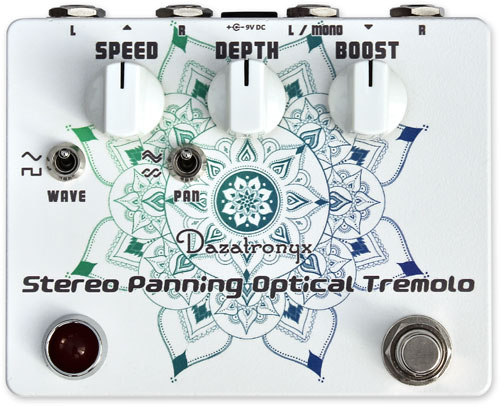 |
STEREO PANNING
By shining a fading light against a photo-sensitive device, this tremolo uses all analog photo-coupling to restrict and fluctuate the output volume. There is automatic perceived volume compensation for the full sweep of the controls. This is a stereo variation of my smaller mono Optical Tremolo. It can take a stereo input, or split a mono guitar input between stereo channels. The PAN switch changes the oscillator of each channel to be out of sync - so one comes up in volume while the other drops. This creates a strange swirling effect. All original analog circuitry and true bypass mechanical switching. As with all of my tremolo models, you should expected perceived unity volume with all depth and rate settings, without having to make any manual volume adjustments. The wet levels are adjustable internally by a trimpots.
Currently out of stock here. |
| Mike Hermans |
| Brett Kingman | |
| James Ryan | |
| Shaun Klinger | |
| @theaustralianguitarshow |
harmonic OPTICAL TREMOLO MK1
This build is not a black face style tremolo. This particular circuit works in a unique way, as two varying high-pass and low-pass filters. Instead of modulating the volume of two registers, it actually modulates the frequency cut of each register. This is done using two very particular photocell sensors, paired against lights which fade in and out. Think of turning two low-pass and high-pass frequency knobs at the same time. This model uses relay switching to include the basic tremolo function from my classic Optical Tremolo design, as well as the asymmetrical square wave. As with all of my tremolo models, you should expect perceived unity volume in all modes with all depth and rate settings, without having to make any manual volume adjustments. The wet levels can be adjusted internally by a trimpot. There is an internal voltage boost for increased headroom, while keeping low noise levels. This version uses surface-mount components to compact it down to a small 1590BS enclosure. 100% Analog circuity. True bypass. There is no internal battery space.
Production of this pedal is paused, while I'm trying out some new ideas. Don't hold your breath... Thank you for your interest.
SOLD OUT |
| Rhys Warden |
| @_Guitar_DAD | |
| TRI PEDAL REVIEWS | |
| James Ryan | |
| James Ryan | |
| James Ryan | |
| James Ryan | |
| Joshua Cheyenne |
TSUCHI FUZZ v2
For a classic germanium fuzz, dial the GAIN back, and turn the CUT right up. Leave the BASS EXPANDER off. For some reshaped flavour: turn the GAIN up higher. This is more gain than you should rightfully squeeze out of a two-transistor fuzz, but dialing the CUT knob back a little can tighten the bottom-end flabbiness and make some refined fuzz-drive. The BASS EXPANDER can optionally be used to-taste to replace the low end reduced by the CUT control. N.B. for purity of design, this pedal uses a positively grounded case. As such, it needs to be run from an isolated power supply, or battery. IE this pedal may not be suitable for a daisy-chain power supply. Battery use is not necessarily preferred. This is built in a small-footprint Hammond 1590B enclosure. Not currently in production |
| Mike Hermans |
| James Ryan |
More on youtube...
|
DISCRETE BOOST
The controls are MASTER (volume) and BODY. With the BODY knob turned fully up, you get a flat and even boost across all frequencies. GAIN can be set by an internal trimpot, or a fixed value resistor. To make things simple, there are some pre-installed surface-mount parts included (shown). These mostly help to build the power sections. This leaves only a small handful of audio parts left to solder, saving you on part costs, and build complexity errors. The surface-mount multilayer ceramic capacitors offer superior ESR properties, and don't have the short-lived shelf life as compared with the electrolytic capacitors. Included SMD parts are: schottky polarity protection diode, self-resetting overcurrent fuse, 33K LED limiter (with through-hole option for value reduction), 3M3 input pull-down resistor, and 12x 22μF capacitors for power switching and filtering. No other parts are included. I have previously built this circuit under the names "Fetish Booster" and "Little Fetish". Circuit boards are posted as letter post.
Build Documents:
or |
Contact Darron Thornbury
Email me at thornbury@gmail.com. I might be a little slow to respond sometimes, but am happy to help out wherever I can.
Please note that I am not taking orders for custom builds. I am also not interested in modifying or repairing pedals of other builders and brands, as I'd rather spend time working on my own effects.
Please follow Dazatronyx on Instagram and Facebook to receive the latest news. |
